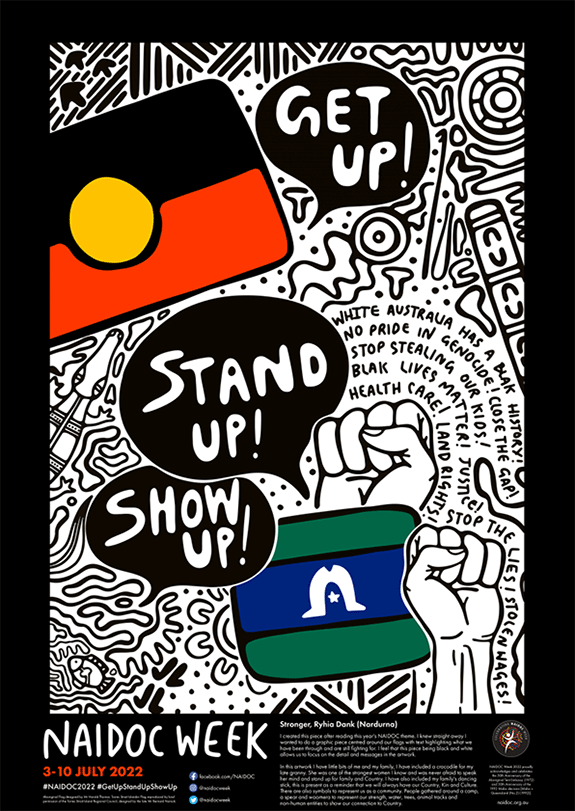
This week is NAIDOC Week that provides us all with the opportunity to remember and celebrate the culture, history and many achievements of indigenous people in this country now called Australia. The week-long celebration grew from the Aboriginal Sunday promoted by William Cooper back in 1938 to mark the Sunday before Australia Day each year as a day of mourning for indigenous people. Under the promotion of the National Aborigines and Islander Day Observance Committee, NAIDOC has been extended from a day to a whole week and has moved from January to July.
The theme this year is Get up! Stand up! Show up! It’s a reminder of how indigenous people have indeed got up, stood up and shown up in defence of their lands and culture against the invading colonisers and in the long fight for recognition, rights and treaty that continues today.
It’s also an invitation for the Second Peoples of this country to get up, stand up and show up as allies and advocates for the First Peoples. This is more than offering an acknowledgement of country at the start of a meeting or event. It’s an attitude and aspiration of being willing to do more in this space and to walk with the First Peoples in their struggle for justice.
The OT prophet Amos rails against the complacency of the people of his day towards injustice and urges them to instead make justice roll down like a river and righteousness like a never failing stream (Amos 5:24). In our day, justice for indigenous people includes closing the gap on so many basic issues such as housing, health and rates of imprisonment. It also means having the courage and active will to implement the Uluru Statement from the heart to give indigenous people a voice to Parliament, to establish a makarrata truth-telling commission and to work towards a treaty.
While these are grand visions on a national scale, we can also work at a local level. The Assembly of the Uniting Church encourages each local congregation to reach out and connect with their local indigenous mob … not to solve problems but to develop a relationship. And then to listen, to listen deeply and then listen some more to the stories and history and lived experience of our local indigenous brothers and sisters.
